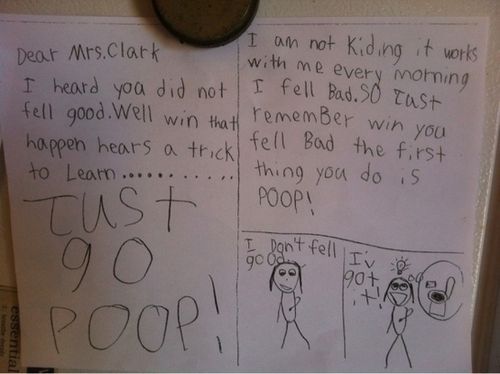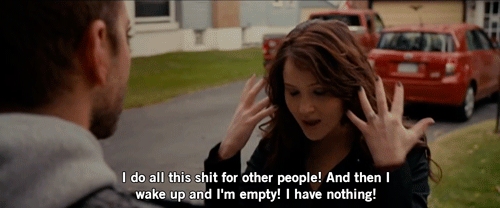I depend on a smooth morning routine to make the rest of the day manageable. This means waking up on time (possibly before my alarm), having time to plan an outfit (let's face it, I'm no fashionista), time for coffee, and a cushion of travel time so that I arrive to the center refreshed and excited.
Find me on a morning when I forgot to set the coffee maker the night before...
I'll be locked in my office sulking.
Find me on a morning when my alarm didn't go off because I set it for PM instead of AM...
I'll be locked in my office with wet hair & probably a scowl, particularly if it's winter or if I have a meeting that day.
Thankfully, I'm an adult. I am responsible for my own destiny with regards to morning routines and can take steps to ensure I transition well in the morning. I make coffee the night before, immediately after walking in the door. I practically triple-check the coffee maker to ensure I've done this correctly.
I may have an issue with caffeine.
Children do not have this same luxury. Children are subject to the routines (or lack thereof) adults provide. When children can predict the happenings of their day, they are better equipped to handle the day. It's important that children be in school every day. Two things there, yes, I call it school because all though we are providing child care, we're also teaching -- and yes, I know that sometimes parents have the urge to keep their children home because they have a day off or they want to spend time with their children. That's cool. All I ask is that parents give their child some semblance of a normal day. Come to school in the morning, maybe stay for lunch, possibly for rest time, and then go about your adventures.
This is particularly true in the first months after a transition. We're working to ensure that children trust the routines of their day. If parents keep children home every other day, it creates an uneasy vibe. Children didn't expect to come to school and as a result, drop off time sucked for the parents, teachers, and
especially for the child. We strive for consistency. We're also working to support attachments within our center. When children know what to expect, they are more confident and better able to focus on learning new things as they feel safe and secure in their environment and schedule. This is true for all ages, up to and including adults.
That being said, let me give a quick word about when routines must be broken or changed. Listen, we're busy people and things happen and somethings, we have to take the bus instead of drive or we have to shower at night instead of the morning. The best way to prepare young children (and yourselves) for this type of situation is to talk about it. Acknowledge that it's difficult and something unusual or new. Let children know what's coming next, especially if it's something out of the norm.
Please respect the routines of children ... and recognize the routines that you depend on as adults and how you feel when someone or something goofs up your daily routines. Does your day seem to take a turn? Do you feel stressed?






















